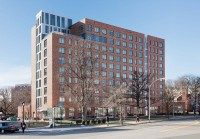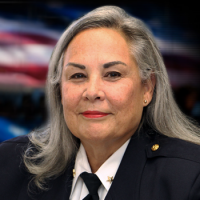White Plains’ Centennial Year Reflects a Focus on Urban Growth

Over the past several years when looking back over 12 months of newspaper stories about White Plains, it has been immediately apparent that the most outstanding news articles overwhelmingly related to development projects throughout the 10-square-mile municipality that is The City of White Plains. With a look back at 2016, the trend has been the same.
As White Plains became an incorporated city 100 years ago, something the board fought hard for over a several year period and won with a state vote of approval in Albany in late 1915, the community in January 1916 was set on a path to become much more than a bedroom suburb of New York City. White Plains, then considered a travel hub, a destination point, the Westchester County seat and with a growing population coming in from Manhattan, had set development as a cornerstone of the city’s future outlook. Much of this remains true today.
North Broadway Proposal Pushes Zoning Change

In 2016, we saw many proposals put before the Common Council to change the Zoning Ordinance to accommodate new development projects. Many of the landowners were represented by the same attorneys, setting precedents for more projects on the horizon. The call to re-evaluate the White Plains Comprehensive Plan was heard many times as each of these proposals was tested against the existing plan for consistency. The growth of residential projects in and surrounding the city’s downtown as well as the request for taller building heights to accommodate multi-use applications had some residents knocking on the doors of city hall, looking for guidelines.
Establishment of the Historic Preservation Commission of 2015 helped to put a framework on some proposals, but no one saw it coming when the Sisters of the Divine Compassion sold their property at 52 North Broadway in 2015 and set in motion a discussion about what would happen to green space and suburban-looking residences at similar locations around the city. The Good Counsel property had been the site of the motherhouse for the Catholic order for over 125 years. The 16-acre campus was protected historically at the state and national level, but developers pushed the limits by stating that the property was not protected by the existing Comprehensive Plan and that taller buildings would allow them to maintain the setbacks in place to keep the green lawns of the property fronting North Broadway and still have a working financial model.
The new owners of the property, WP Development NB, LLC, petitioned the White Plains Common Council for a zoning change that would allow the construction of a mixed-use development in the current multi-family residential zone. The plan used to promote the new zone, called Planned Residential Development district, includes a ten-story 400-unit housing complex at the back of the 16-acre property, an assisted living facility operated by Sunrise Senior Living holding 125 beds with 61 living units and 29 memory care units, and graduate student housing for Pace Law School students, comprised of 66 suites.
FASNY Debate Continues
With several years of discussion and contentious debate already part of White Plains history, the status of the French American School of New York’s proposal to build a campus at the site of the former Ridgeway Country Club went through several gyrations during 2016.
The White Plains Council had tabled further discussion of the FASNY plan in August 2015 when a vote to not permit the partial closing of a public roadway within the school property caused the overall plan to fail. However, in January 2016 a State Supreme Court judge ordered the Council to vote on the FASNY application at its next meeting in February and rejected the attempt of a Gedney neighborhood opposition group to intervene in the case. By February the White Plains Council had filed an appeal, which was later rejected by the judge. By September, White Plains and FASNY had entered into a Stipulation Settlement, which remains in process and will continue into 2017.
Under the Stipulation of Settlement, litigation between FASNY, White Plains Mayor Tom Roach and the Common Council was suspended and FASNY submitted an alternative plan application for a reduced school on a portion of the site. The plan is under attack by neighborhood groups.
Planning a Transit District
Having received a $1 million state grant to conduct research and re-assess the White Plains Metro-North station so that it functions more efficiently, the City of White Plains began to engage the public through a series of events in the planning stages of a Downtown White Plains Transit District.
The study, focused on the area immediately surrounding the train station, considers the creation of more pedestrian-scale streets, transit-supportive land uses (commercial and residential); engaging public spaces; and linkages and connections between the transit district and the downtown core.
Valet Parking and Taxis Control
Addressing the fast changing nature of the White Plains downtown, the Council voted during its Feb. 1 meeting to pass a comprehensive valet parking ordinance to allow businesses, especially along Mamaroneck Avenue, to provide valet parking service to their customers.
A proposal, then in its early stages to amend the City Center site plan by its new owners Kite Realty Group included adding valet parking drop-off on the Mamaroneck side of the development. The new City Center design included a new canopy on Mamaroneck Avenue and an opening of the City Center lobby to include an escalator for access to the upper floors.
At its April 4 meeting, the White Plains Common Council approved an overhaul of the city’s Taxi Ordinance. The changes, which had been sought by Mayor Tom Roach because of consumer complaints, were focused on passenger service. The ordinance authorized five additional White Plains taxicab medallions to be assigned to accessible vehicles only, and permitted hailing, within a defined ‘Hail Zone’ in the downtown area. All White Plains licensed taxicab drivers are now required to submit to annual drug testing, and owners and drivers of taxicabs are required to maintain vehicles in a clean and safe condition. Cars will be taken out of service when they reach 400,000 miles. These changes came on the heels of the installation of two Taxi Starters (Special Patrol Officers) at the White Plains Metro-North station.
Development and More Development
After many years of vacancy, the Westchester Pavilion at 60 South Broadway, home of the former Borders Books, will be torn down and a new multi-use development with several levels of rental apartments, retail stores and restaurants will be constructed on the corner of South Broadway and Maple Avenue. The resolution passed by the White Plains Council at their Feb. 1 meeting included Site Plan approval for the full development and Special Permit approval for six outdoor dining locations. The development required a spot zoning change to allow for the increased height of the residential building.
Also part of this project and a first for White Plains is a Recreation and Parks impact fee that will be assessed for the 707 residential units on a per residential unit basis, amounting to a total of $2.23 million to be paid by the applicant to the city in three installments to be used exclusively to enhance existing city parks and playgrounds or create new ones.
In the same area of town, Esplanade Hotel building refurbishment plans were underway with the building’s owner (White Plains Venture Partnership) petitioning for an amendment to the Zoning Ordinance to allow the owner to take an existing 90-unit building and renovate it to a total of 212 smaller rental apartments.
The Norden Lofts, LLC, at 121 Westmoreland Ave., at the site of a former industrial building that had been vacant for more than 13 years, was the first development application in the new White Plains LI-M Zoning District. The project was received with enthusiasm as an adaptive reuse and redevelopment of an existing building to residential apartments while maintaining the industrial nature of the building. As a market rate rental project, the apartments are geared toward young professionals working in or commuting from White Plains.

White Plains Mayor Tom Roach and Housing Authority Director Mack Carter cut the ribbon and officially opened the Prelude and the White Plains Education & Training Center (WPETC). Located at the corner of South Lexington Avenue and Quarropas Street in White Plains, the Prelude is the first phase of a long-term transformation and comprehensive revitalization of the White Plains Housing Authority’s 450-unit Winbrook public housing campus.
Two retail-shopping projects were the subject of review in the late spring. One was a proposal to overhaul elements of The Westchester mall, which has not seen an upgrade since it was built about 20 years ago. The other was for the Site Plan for the Boulevard multi-use project on the Post Road in White Plains. One of the major intentions of the owners of The Westchester was to rebrand the mall with signage indicating that Simon Properties is the owner. The food court was also slated for improvements with new restaurants offering more gourmet selections including a bar element, which caused a change in access times to the mall.
The Site Plan for the Boulevard, proposed by Grid Properties, Inc., included a city zoning change to allow the mixed-use application with 200,000 square feet of retail, fitness and restaurant space and 12 market rate rental townhouses, each with one bedroom. The 720 parking spaces included in the project are reserved for residents and shoppers and with some restrictions will be free.
Along with the development of new construction, Dannon joined the ranks of developers moving into empty space and requesting zoning changes for major renovations. Dannon is relocating its headquarters from Greenburgh to the former Fortunoff’s building in White Plains in an effort to provide its younger employees with a surrounding environment full of services and social interaction.
Dannon will occupy the top floors of the former retail giant on the corner of Bloomingdale Road and Maple Avenue and will install a food lab on the ground floor. The food lab construction required a change to the city code to allow laboratory use as an adjunct to office use.
Just up the street on Maple at One DeKalb, a Special Permit was granted for the height of the residential building at the same location to increase to six floors. Two levels of parking would be located below the four levels of 77 multi-family residential units.
The roof would include a walkable green roof area and vegetable garden for residents.
Reintroduction of Agriculture and Control of Nurseries
During the summer months of 2016 the City of White Plains took an innovative approach to clearing the overgrown city-owned land at Baldwin Farm by renting 29 goats to munch on an infestation of poison ivy. Baldwin Farm is a passive park on Hall Avenue known for its community garden plots. The land was privately owned and used for farming until 1979. Since its acquisition by the City of White Plains in 1974, it has been used for passive recreational purposes and, since 1983, for community gardens. The City is slowly re-introducing low intensity agricultural uses back to the property while maintaining public access. Toward this end two beehives were introduced in June. The bees have been busy making White Plains honey for several months now.
An ongoing and often emotional interaction between residents and nursery businesses in White Plains reached somewhat of a pivot point when discussion was encouraged between the differing parties before the White Plains Council issued a change to the Zoning Code to add Nursery Business as a Special Permit and add organic manufacturing as a permitted use.
The new code is expected to define nursery business in a way that allows city staff and the Council, as well as nursery owners to more easily consider applications with specifically designated regulations. One nursery representative proposed that an amendment to Section D-2 of the existing ordinance making sure that nurseries strictly comply with existing conditions should help alleviate some of the problems without putting restrictions on old family-owned businesses that might force them to close down. Many of the nurseries operating in White Plains had already won or settled in court over similar grievances.
Woman’s Club Celebrates 100 Years
The Woman’s Club of White Plains celebrated its centennial in 2016 with 100 Acts of Kindness performed by club members throughout the year. The organization raised funds and collected items for needy families in the community as they have done traditionally throughout their existence. They also celebrated the changing role of women in the community throughout the decades. A Gala of the Century was held in November, capping off the fundraising calendar. A Scholarship Luncheon and Fashion Show was held in April and a Jazz Concert in June.
Coming Together Because Black Lives Matter

Protestors marched alongside police, and city and state officials during the summer of 2016 as hundreds attended a White Plains march calling for police reform following the deaths of Alton Sterling and Philando Castile.
Starting at Calvary Baptist Church in White Plains, protestors marched first to the Winbrook Public Housing building where Kenneth Chamberlain, a 68-year-old former Marine, was killed during a confrontation with police in 2011. The march continued to police headquarters, where White Plains Police Chief Anne FitzSimmons led the group in prayer. “We want to show America an example of a good community and of a loving community and a community that is going to ask those hard questions, hear the right answers, and make police and the community to be as one,” Calvary’s Rev. Erwin Lee Trollinger, the event’s organizer, said at the outset of the march. “This not an angry march. This is not a fighting march. This is a coming together march.”
The march and rally followed fatal shootings by police of a number of black men, most recently Sterling and Castile in Louisiana and Minnesota, respectively, as well as the murder of five police officers in Dallas. The marchers were joined by White Plains police officers, as speakers stressed that they were speaking out not against police but for better policing practices.
FitzSimmons Becomes First Female Police Chief

Assistant Police Chief Anne Fitzsimmons became the first woman police chief in White Plains in 2016. She had been a police officer for 36 years. Anne began her service in the Patrol Division, as one of the first females to be assigned to regular patrol duties. In 1984, she began her assignment in the Youth Unit and was primarily involved in investigations involving children, sex crimes and domestic violence. In 1987, she was promoted to sergeant and was responsible for supervising criminal investigators. She remained in this position until 1997 at which time she was promoted to Lieutenant – Executive Officer of Criminal Investigations. In 2001, Anne was the first female to achieve the rank of Captain in the White Plains Police Department. In 2006, Anne was promoted to Assistant Chief.
In Search of a New Superintendent of WP Schools
It was with heavy hearts during the December 2016 meeting of the White Plains Board of Education that Dr. Paul Fried’s resignation as Superintendent of Schools was accepted. After a long search, he began work with the district in July 2015. He went on medical leave in May 2016 at which time former Superintendent Timothy Connors stepped in to fill the gap. Dr. Howard Smith took the position in October 2016 and will continue as Acting Superintendent until June 30, 2017. The search for a new superintendent has been initiated by the Board.
